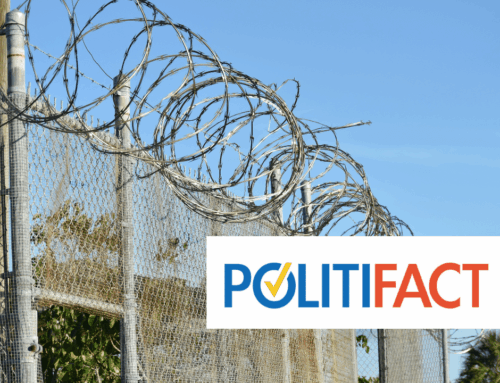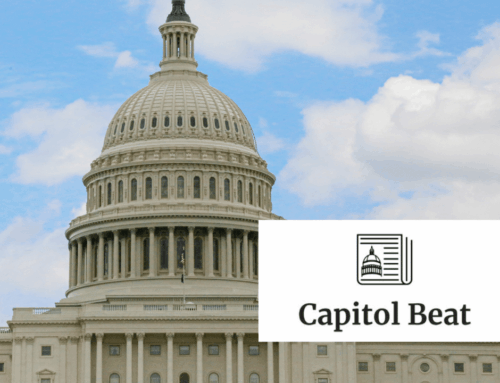President Trump’s trade war just entered a new phase.
On September 17, President Trump announced a 10 percent import tax on $200 billion worth of goods from China starting September 24. If China does not accede to U.S. trade demands, the rate increases to 25 percent on January 1, 2019. As expected, China responded with tariffs of 5 to 10 percent on $60 billion worth of goods from the U.S.
This is a trade war of choice and will hamstring future efforts to right our fiscal ship, while simultaneously planting seeds of cynicism. And yet – perhaps understandably – the tariffs imbroglio is getting lost in the devastating damage of Hurricane Florence, a Supreme Court nomination, and the legislative sprint to avoid a government shutdown.
Worse, much of Washington and Wall Street is downplaying the harms of the trade war with various excuses. Such as:
- Imports represent a small percentage of the economy.
- Until now most of the products have not been consumer goods (like cellphones, toys, or even food) but parts and raw ingredients that American companies import for assembly or repurposing.
- So companies haven’t necessarily added the cost of the import tax into the prices they charge.
- Plus tariffs are a temporary tool to get better trade deals.
In the words of the president’s trade advisor Peter Navarro, the sectors affected by tariffs are so insignificant they are simply “a rounding error.”
The problem is, this doesn’t square with evidence or history.
These Tariffs Won’t Be Temporary
Washington is overrun with “temporary” government initiatives, like tariffs, that never end. The 1872 mining law passed to help tame the west by giving away land for as little as $2.50 an acre – still around and being exploited by companies mining public lands for resources including gold, silver, uranium. Great Depression-era laws giving the Department of Agriculture authority to prop up the income of destitute farmers – still doling out cash to the favored few even as both the income and wealth of farm households greatly exceeds that of the average American. An import tax on imported light trucks created in the early 1960s, imposed after Germany and France increased tariffs on US chickens, still creates havoc in the auto industry. The recent tariffs are likely to be just as “temporary.”
In fact the use of tariffs as a tool is likely to increase. Commerce Secretary Wilbur Ross, White House trade advisor Peter Navarro, and United States Trade Representative Robert Lighthizer, all appear to support tariffs as an end, not just a means. Every time the Commerce Department has started an investigation into whether products being imported are a threat to national security, whether it’s steel from our long-term nemesis Canada or aluminum from our NATO allies in Europe, they’ve found an increase in tariff rates justified. So what evidence is there to suggest they will stop short of imposing tariffs on the $350 billion in automobiles and auto parts imported every year? Besides, President Trump himself has repeatedly stated that tariffs will make this country much richer.
A Long Term Threat – Picking Winners and Losers
Economic disruption isn’t the only threat from a trade war, it’s the government’s increasing role in directly creating winners and losers. Farmers and ranchers are the most obvious business sector getting the short end of the trade war stick. But there are plenty of others seeing lost income and lost markets, including Caterpillar and General Motors.
As for “winners,” which the government’s actions are directly responsible in creating, this entire trade predicament got underway because of efforts to tilt the markets in favor of domestic steel and aluminum manufacturers. And it’s sure been profitable for them, with stocks surging and plants reopening. The problem is it’s leading to job losses for steel and aluminum users. And the most recent estimate of the whole trade war is a net reduction of nearly half a million jobs and $150 billion in economic activity.
People, Not Politicians
The Trump Administration’s response to the fallout is making things even worse. The USDA is adding $12 billion to the national debt to mitigate economic losses caused by tariffs. But details show fat checks lined up for growers of soybeans, cotton, and sorghum, with comparatively pennies for corn, wheat and other commodities. Also while the overwhelming majority of the 6,194 comments submitted and 357 testimonials – provided at the Commerce hearing investigating whether to impose these new tariffs – sought exemption from increased tariffs, ultimately only 286 items were exempted from a list of 6,031 items. Are you importing aluminum and zinc ores and concentrates, or badger hair or other brushmaking hair? Then you have a get-out-of-tariffs-free card. By the way, those first two just happen to be raw ingredients for producing aluminum or steel. Go figure. Badger hair? You tell us.
Washington needs to create an environment that dismantles unnecessary, costly barriers to having people, industries, and communities prosper on their own. Absolutely yes, we must tackle distortions and barriers (both foreign and domestic). But it needs to be done multilaterally and through long-established and effective tactics and institutions. Not by picking winners and losers, which only results in the federal government depressing economic activity. And certainly not by following bad economic policy with politically motived bailouts which we can’t afford. We should provide means-tested, accountable, and market-responsive safety nets for those who need them. But we can’t provide forever soft landing places in a completely avoidable trade war. Not with $21.3 trillion in debt and a vastly rising deficit of $833 billion for which the pied piper will one day come a calling. That’s a truth that is always true.










